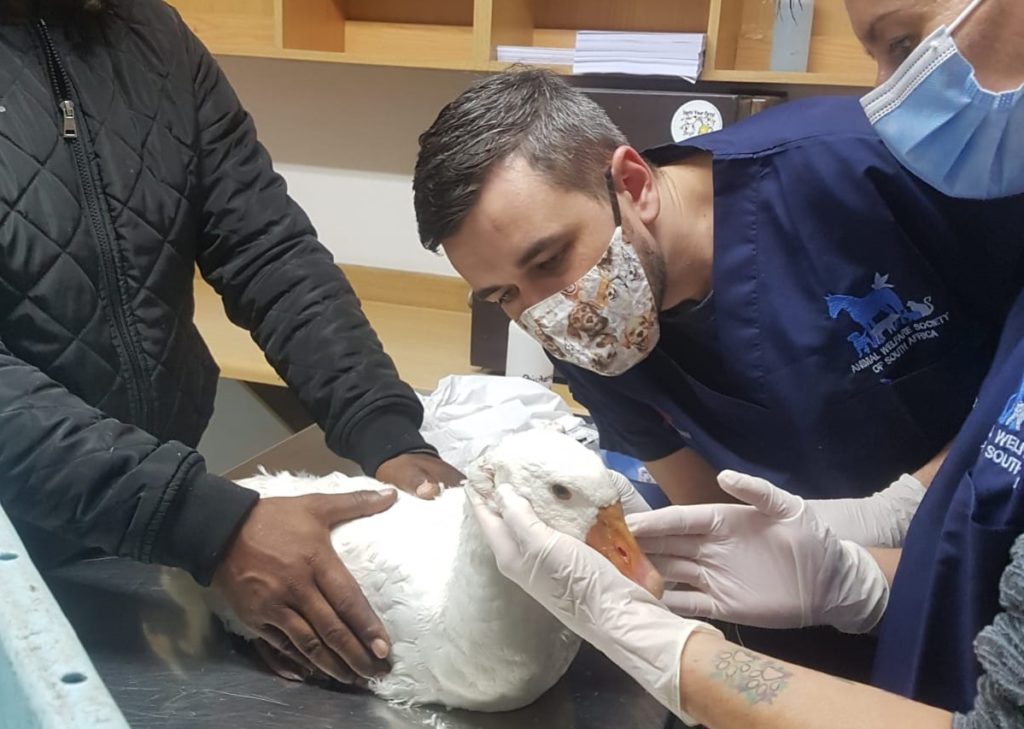There is a misconception amongst an uninformed few that the Animal Welfare Society of South Africa only attends to, and treats cats and dogs. In actual fact the shelter attends to all animals! Furry, feathery, scaly and smooth. From tiny mischievous dwarf hamsters to equines and bovines.
“Seeing to the needs of unusual or rare patients brings us great fulfilment and our hospital team has earned themselves quite an enviable reputation for successfully treating and rehabilitating just about every animal imaginable.”
On Tuesday afternoon, June 1 2021, the Animal Welfare Society dealt with two interesting cases involving an injured pet duck who had been mauled by a dog and a terribly unhappy-looking pet chicken that had lost her “cluck for life”.

The duck had several deep bite wounds and lacerations to her neck that required flushing and topical antibiotics to keep infection at bay and was discharged back to the care of her owner with a guarded prognosis whilst the chicken had everyone a bit perplexed.
One minute she was all perky and chatty, the next scrunched up and finally, she decided to take a nap whilst the team tried to figure out what was making her so unhappy.
The most common causes of chickens falling ill and /or dying can be put down to three things:
- If the chicken has faeces-stained feathers, then it’s worms
- If the bird was lame it’s likely Marek’s disease (or something equally sinister – especially if the bird has never been vaccinated)
- If it was a case of sudden death, the cause is probably a heart attack
The Animal Welfare Society suspects that in the case of their recent patient, she may have suffered from exposure to the wintery elements.They afforded her some vitamins and recommended that she be housed in a warm coop with access to ample food and water, and that her owner keeps an eye on her for any changes.

Many poultry and waterfowl owners like to allow their pet birds to free-range which is commendable provided that they have access to shelter and adequate food and water and that a check is kept on numbers. Over-population can lead to bullying and fighting with tragic consequences especially amongst adult male birds kept in over-crowded or battery type conditions.
To ensure their good health (and that of any visiting birds) it is also imperative that they be vaccinated against all controlled and notifiable diseases and dewormed regularly.
Picture/s: Supplied

